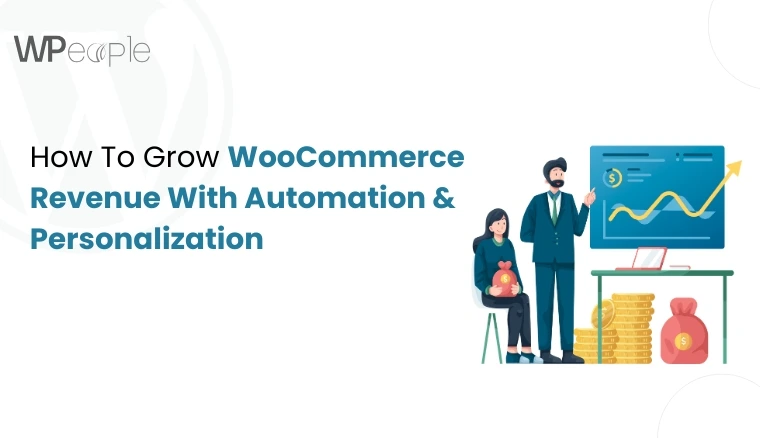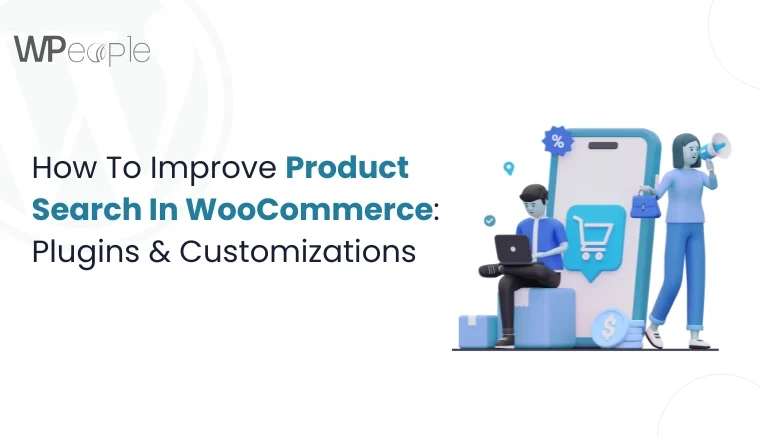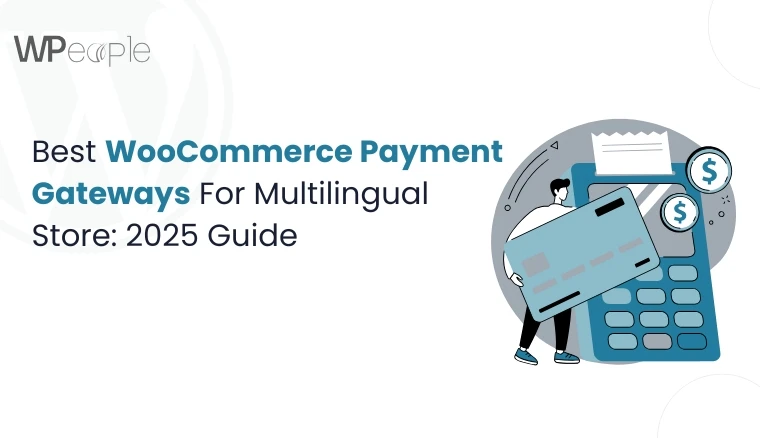
Introduction
In the ever-evolving landscape of e-commerce, ensuring robust WooCommerce Security issues and WP Security measures is paramount for safeguarding your online business, protecting customer data, and maintaining & supporting trust in your brand. With cyber threats becoming increasingly sophisticated, implementing a comprehensive security strategy is no longer an option but a necessity. This comprehensive guide delves into the importance of securing your WooCommerce store, explores common security threats, provides a detailed step-by-step checklist to fortify your defenses, and introduces the best security plugins to bolster your online presence.
Why Prioritize WooCommerce Security and WP Security?
As an e-commerce platform, WooCommerce handles a vast array of sensitive customer information, including personal data, payment details, and potentially confidential communications. A security breach can have far-reaching and devastating consequences, such as data theft, financial losses, legal implications, and irreparable damage to your brand’s reputation. Implementing stringent WooCommerce Security and WP Security measures is not only a prudent business decision but also a moral obligation to safeguard your customers’ trust and ensure compliance with data protection regulations like the General Data Protection Regulation (GDPR) and the California Consumer Privacy Act (CCPA).
Common Security Threats for Online Stores
1. Brute Force Attacks:
These automated attacks attempt to gain unauthorized access by systematically guessing usernames and passwords, often using powerful computing resources or botnets.
2. Malware Infections:
Malicious software designed to disrupt, damage, or gain unauthorized access to your website can be injected through various vectors, such as compromised plugins, themes integrations, or vulnerabilities in your website’s code.
3. SQL Injection Attacks:
By exploiting vulnerabilities in web applications, attackers can insert malicious SQL code, potentially allowing them to access, modify, or delete sensitive data stored in your database.
4. Cross-Site Scripting (XSS):
These attacks involve injecting malicious scripts into trusted websites, enabling attackers to steal sensitive data, hijack user sessions, or redirect visitors to malicious sites.
5. Distributed Denial of Service (DDoS) Attacks:
In a DDoS attack, your website is overwhelmed with traffic from multiple sources, rendering it unavailable or inaccessible to legitimate users and customers.
A Step-by-Step Checklist for WooCommerce Security and WP Security
Strong Foundation
1. Secure Hosting Provider: Choose a reputable hosting provider that prioritizes security, offers regular backups, implements the latest WP Security measures, and follows industry best practices for secure web hosting.
2. Strong Passwords and 2FA: Implement strong, unique passwords for all accounts associated with your WooCommerce store, avoiding common patterns or easily guessable phrases. Additionally, enable two-factor authentication (2FA) for an additional layer of WooCommerce Security, ensuring that even if a password is compromised, unauthorized access is prevented.
3. Regular Updates: Keeping your WooCommerce installation, WordPress core, themes, and plugins up to date is crucial for patching known vulnerabilities and security flaws. Outdated software can leave your store susceptible to exploitation by cyber criminals, compromising WP Security.
4. Protecting Customer Data: Implement robust measures to encrypt and securely store customer data, ensuring compliance with data protection regulations like GDPR and CCPA. This includes implementing secure communication protocols, encrypting sensitive data at rest and in transit, and adhering to best practices for data handling and storage, enhancing WooCommerce Security.
Secure Website
1. SSL Certificate: Install a Secure Sockets Layer (SSL) certificate to establish a secure, encrypted connection between your website and visitors, protecting sensitive data such as login credentials and payment information during transmission. Reputable Certificate Authorities (CAs) like Let’s Encrypt offer free SSL certificates, improving WooCommerce Security.
2. Secure Payment Gateways: Utilize secure and reputable payment gateways that adhere to the Payment Card Industry Data Security Standard (PCI DSS) to ensure safe and secure transactions for your customers. Popular options include PayPal, Stripe, and Authorize.net, among others, bolstering WooCommerce Security.
3. User Permissions: Assign appropriate user roles and permissions to limit access to sensitive areas of your website, ensuring that only authorized personnel can access and modify critical data or settings, strengthening WP Security.
4. Data Backups: Regularly backup your website files, databases, and other critical data to enable swift recovery in the event of a security breach, data loss incident, or other unforeseen circumstances. Implement automated backup solutions and store backups securely off-site, enhancing WooCommerce Security.
5. Web Application Firewall (WAF): Implement a robust Web Application Firewall (WAF) to monitor and filter incoming traffic, blocking malicious requests, potential attacks, and known vulnerability exploits before they can reach your website, fortifying WP Security.
6. Activity Log and Monitoring: Enable activity logging and monitoring to track user actions, detect suspicious behavior, and respond promptly to potential threats. Regularly review activity logs for any anomalies or unauthorized access attempts, strengthening WooCommerce Security.
7. Malware Scanning: Regularly scan your website for malware and remove any detected threats to prevent further damage, data breaches, or unauthorized access. Implement automated malware scanning solutions to ensure continuous monitoring and protection, boosting WP Security.
8. Secure Login Page: Customize your login page URL to make it harder for automated attacks to locate and target it. Additionally, implement brute force protection measures to limit the number of failed login attempts and mitigate the risk of successful brute force attacks, enhancing WooCommerce Security.
Additional Security Measures
1. Content Security Policy (CSP): Implement a Content Security Policy (CSP) to control and restrict the resources (scripts, images, fonts, etc.) that your website can load, mitigating cross-site scripting (XSS) attacks and other content injection vulnerabilities, improving WP Security.
2. Secure File Uploads: Implement measures to validate and sanitize file uploads, ensuring that only authorized file types and sizes are accepted. This prevents the upload of malicious files that could compromise your website’s security or consume excessive resources, bolstering WooCommerce Security
3. Restricting Access: Restrict access to sensitive files and directories by configuring appropriate permissions and using .htaccess rules or web server configurations to deny access to unauthorized users or bots, strengthening WP Security.
4. Disabling Directory Browsing: Disable directory browsing to prevent unauthorized access to your website’s file structure and sensitive information, which could be exploited by attackers, enhancing WooCommerce Security.
5. Security Headers: Implement security headers such as X-XSS-Protection, X-Frame-Options, and Content-Security-Policy to enhance your website’s security posture and mitigate various types of attacks, including XSS and Clickjacking, improving WP Security.
6. Secure Cookie Handling: Ensure that cookies used by your WooCommerce store are properly secured, with the HttpOnly and Secure flags set, to prevent unauthorized access or tampering by client-side scripts or insecure connections, fortifying WooCommerce Security.
7. Input Validation and Sanitization: Implement strict input validation and sanitization measures for all user-supplied data, including form submissions, URLs, and file uploads. This helps prevent various injection attacks, such as SQL injection, and mitigates the risk of code execution or data manipulation, strengthening WP Security.
Best Security Plugins for WooCommerce Security and WP Security
While implementing the above measures is crucial, security plugins can further enhance your WooCommerce store’s defenses. Some of the best security plugins for WordPress Security and WP Security include:
1. Wordfence Security:
A comprehensive security solution offering a web application firewall, malware scanning, two-factor authentication, and advanced security features like real-time IP blacklisting and country blocking.
2. Sucuri Security:
A cloud-based security solution providing a robust website firewall, malware removal, security hardening features, and continuous monitoring for emerging threats.
3. iThemes Security: A popular security plugin with features like two-factor authentication, brute force protection, security scanning, and mechanisms to prevent various types of attacks, such as XSS and SQL injection.
4. WP Cerber Security:
A comprehensive security plugin offering anti-spam, anti-exploitation, and various security hardening features, including login security, malware scanning, and a built-in web application firewall.
5. All In One WP Security & Firewall:
A feature-rich security plugin that provides a wide range of security measures, including user account security, file system protection, database security, and a firewall to block malicious traffic.
6. Bulletproof Security:
A powerful security suite designed to harden WordPress and WooCommerce installations, offering features like security logging, IP tracking, and advanced security configurations.
7. Defender Security:
A comprehensive security solution that combines a web application firewall, malware scanning, security auditing, and two-factor authentication for a multi-layered approach to WooCommerce Security and WP Security.
Conclusion
Securing your WooCommerce store is an ongoing process that requires vigilance, proactive measures, and a commitment to staying ahead of evolving cyber threats. By following the best practices outlined in this guide, implementing a secure hosting environment, utilizing secure payment gateways, and leveraging security plugins, you can significantly reduce the risk of security breaches and protect your online business, customers, and reputation.
Remember, WooCommerce Security and WP Security are investments in safeguarding your customers’ trust, preserving your brand’s credibility, and ensuring the long-term success of your e-commerce venture. Stay vigilant, regularly review and update your security measures, and foster a culture of security awareness within your organization.
where cyber threats are ever-present, taking a reactive approach to security is no longer an option. Proactive measures, continuous monitoring, and a holistic security strategy are essential for maintaining a secure and trustworthy online presence for your WooCommerce store.
FAQs
1. Why are WooCommerce Security and WP Security important?
WooCommerce Security and WP Security are crucial because they protect your online store, customers’ sensitive data (such as personal information and payment details), and your business from potential cyber threats, data breaches, and financial losses. They also help maintain customer trust and ensure compliance with data protection regulations like GDPR and CCPA.
2. What are some common security threats for WooCommerce stores?
Common security threats for WooCommerce stores include brute force attacks, malware infections, SQL injection attacks, cross-site scripting (XSS), distributed denial of service (DDoS) attacks, and vulnerabilities in plugins, themes, or the core software.
3. How can I strengthen my WooCommerce store’s security?
You can strengthen your WooCommerce Security and WP Security by implementing strong passwords and two-factor authentication, keeping your software (WooCommerce, WordPress, themes, and plugins) up to date, using SSL certificates, securing payment gateways, managing user permissions, regularly backing up data, using a web application firewall, enabling activity logging and monitoring, and scanning for malware.
4. What are some recommended security plugins for WooCommerce?
Popular and highly recommended security plugins for WooCommerce Security and WP Security include Wordfence Security, Sucuri Security, iThemes Security, WP Cerber Security, All In One WP Security & Firewall, Bulletproof Security, and Defender Security. These plugins offer features like firewalls, malware scanning, two-factor authentication, and various security hardening measures.
5. How often should I update my WooCommerce installation and plugins?
It’s essential to keep your WooCommerce installation, WordPress core, themes, and plugins up to date as soon as new updates are available. These updates often include critical security patches and vulnerability fixes, ensuring your store remains secure against the latest threats.
6. Can security plugins alone fully secure my WooCommerce store?
While security plugins are valuable tools that can significantly enhance your store’s security, they should not be relied upon as the sole security measure. A multi-layered approach, combining secure hosting, strong passwords, regular updates, proper user permissions, and other best practices, is necessary for comprehensive protection.
7. How can I protect my WooCommerce store from DDoS attacks?
To protect your WooCommerce store from DDoS attacks, you can implement a robust web application firewall (WAF), work with a hosting provider that offers DDoS protection services, use a content delivery network (CDN) to distribute traffic, and have a plan in place to quickly scale resources or switch to a dedicated DDoS protection service during an attack.
Consult with Our WordPress Experts On:
- WooCommerce Store
- Plugin Development
- Support & maintenance




